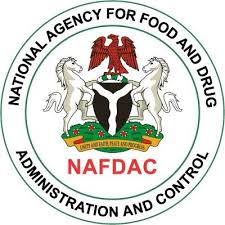WHO Warns: Diabetes Cases in Africa Could Reach 54 million by 2045 – What Nigerians Need to Know
The World Health Organization (WHO) has raised an urgent alarm about the potential surge in diabetes cases across Africa. Dr. Matshidiso Moeti, WHO Regional Director for Africa, shared that by 2045, the number of people living with diabetes in the region is expected to reach 54 million. This increase would be the highest globally, highlighting the need for immediate action.
Why Diabetes Is on the Rise
Diabetes, a chronic condition that results from the body’s inability to produce or effectively use insulin, is becoming more common due to factors such as urbanization, unhealthy diets, and lack of physical activity. Currently, over 24 million adults in the African region live with diabetes, and half remain undiagnosed. In Nigeria, this trend poses a significant health threat as untreated diabetes can lead to severe complications like heart disease, stroke, kidney failure, and blindness.
Challenges in Managing Diabetes
Dr. Moeti pointed out that Africa invests the least in diabetes care, allocating only 1% of the health budget to it. Health systems in the region are more geared towards combating infectious diseases and often overlook chronic conditions like diabetes. This gap in healthcare leaves patients facing high costs and limited support.
Steps Towards Better Diabetes Care
At the WHO’s Seventy-fourth session of the Regional Committee for Africa in August, member states, including Nigeria, backed a new framework for implementing the Global Diabetes Compact. This initiative aims to integrate diabetes care into general health systems and strengthen prevention and treatment at primary healthcare levels.
What Can Nigerians Do?
Nigerians are encouraged to take preventive measures by maintaining a balanced diet, staying physically active, and prioritizing mental well-being. Regular check-ups are crucial for early diagnosis and management of diabetes. Community support can also play a role in encouraging healthy lifestyles and reducing the stigma around diabetes.
Collective Action Needed
Dr. Moeti called for a united effort involving individuals, communities, health professionals, policymakers, and civil society to improve diabetes prevention and care. Governments should focus on policies that increase access to medicines and enhance healthcare services. Addressing myths about diabetes, bolstering primary healthcare, and providing better training for health workers are essential steps for improving diabetes management,” Moeti concluded.
Without urgent intervention, the number of people living with diabetes in the African region will rise to 54 million by 2045, posing a significant dual health and economic burden.” – Dr. Matshidiso Moeti, WHO Regional Director for Africa.
Final Thoughts
For Nigeria to curb the diabetes crisis, fostering environments that support healthy living and strengthening primary healthcare are crucial. Immediate action, community engagement, and policy reforms can pave the way for better diabetes care and management.
In conclusion, addressing the rising diabetes crisis in Africa, particularly in Nigeria, requires a multi-faceted approach. Preventive measures like healthy eating, regular physical activity, and mental wellness should be promoted at all levels. Governments, communities, and health sectors must collaborate to increase awareness, provide affordable healthcare, and reduce the stigma surrounding diabetes. By taking immediate, coordinated action, Nigeria can build a resilient healthcare system that supports better diabetes management and improves the quality of life for millions.











